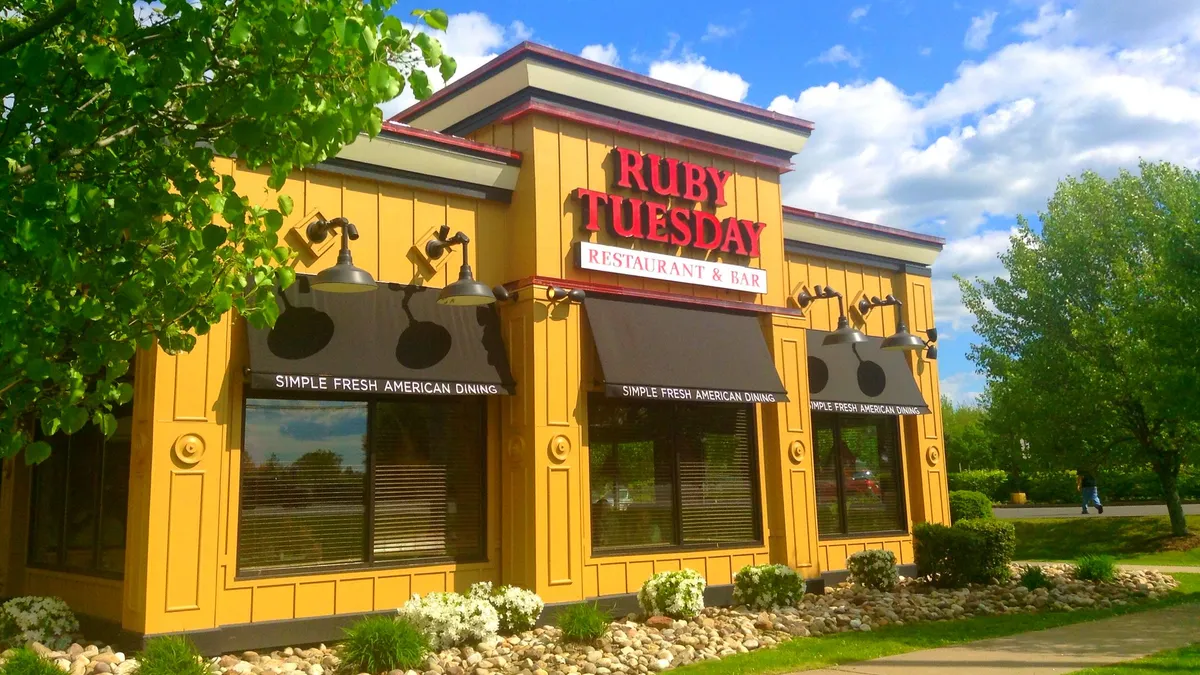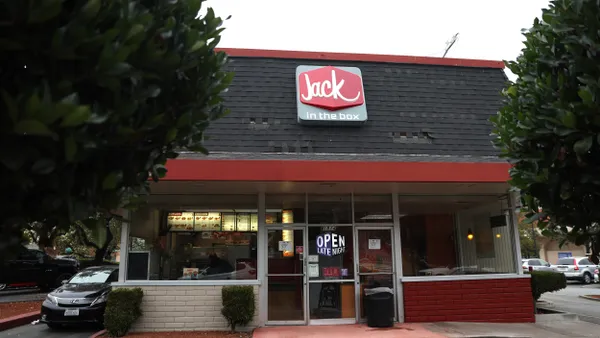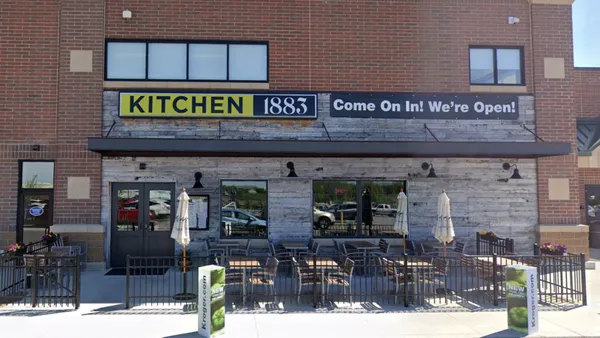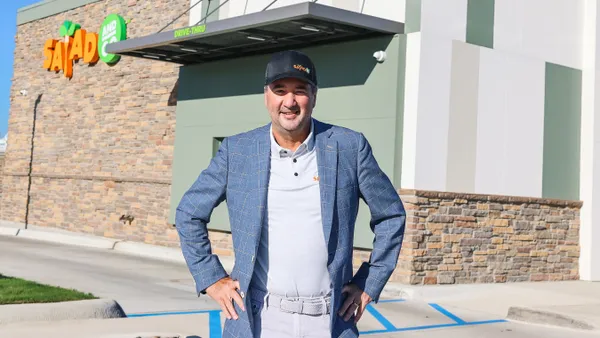Dive Brief:
- Ruby Tuesday has closed more than 150 restaurants so far this year and some locations are not notifying employees in advance of those closures. Business Insider reports that some staff have showed up to work only to find that their restaurant had permanently closed.
- Ruby Tuesday’s closures have accelerated because of the COVID-19 pandemic, and the chain has shut down one-third of its global footprint.
- The chain didn’t respond to Business Insider’s request for comment about this story, and calls placed to its corporate office went straight to voicemail.
Dive Insight:
These reports have come from employees at restaurants from Indiana to New York to Missouri. Further, some of those employees told Business Insider that they received instruction from corporate not to tell other employees about the closure “until the last possible moment.”
One employee said the chain used to transfer employees if a location closed, but that isn’t possible anymore because other locations are also struggling.
Casual dining concepts without a heavy off-premise presence in particular have experienced significant challenges since the onset of the novel coronavirus, and Ruby Tuesday is no different. According to Black Box Financial Intelligence data ending the week of Aug. 2, 12% of full-service chain restaurants that existed prior to the outbreak remain closed.
Those challenges were no doubt compounded by the chain’s heavy buffet-style salad bar presence. The model has been heavily restricted since March and, in May, full-service restaurants with buffets made about one-third of the total sales from the year prior.
Although the chain recovered some sales from delivery and takeout during the crisis, and has received between $5 million and $10 million in Paycheck Protection Program loans, that may not be enough to overcome its fundamental issues that existed well before the pandemic set in. On top of struggling sales and an aging customer base, the chain has gone through five CEOs in the past five years and that position is currently unfilled. Employees expressed to Business Insider that this unsteady leadership has been discouraging.
In a statement earlier this month, the company said, “During these uncertain times, and after careful consideration, we have made the decision to close select locations in an effort to better position our restaurants for future business.” But that future will be hard to come by with an eroded reputation surrounding labor.
Ruby Tuesday, however, isn’t the only restaurant company that has “ghosted” its employees. Others, like Joe’s Crab Shack and Paula Deen’s Uncle Bubba's Seafood & Oyster House, have been accused of doing the same. As it turns out, employees have little protection here. The Worker Adjustment and Retraining Notification Act that requires employees to notify employees of closures or layoffs at least 60 days in advance only applies to companies with 100 or more full-time workers and most restaurants employ part-time workers.













